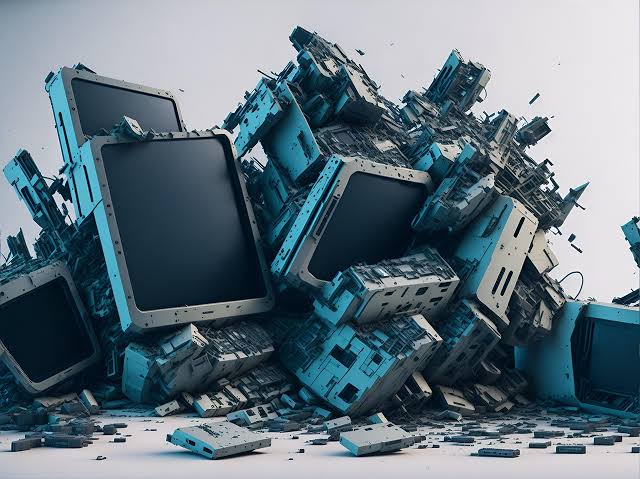Understanding the Modern E-Waste Challenge
Technology evolves rapidly, and with each new upgrade, countless computers, laptops, and related devices become obsolete. While it is exciting to embrace faster processors, sleeker designs, and more powerful systems, the question of what happens to old machines is often overlooked. This issue has given rise to a growing global challenge: electronic waste, or e-waste. Computers are a significant contributor to this problem, and how they are handled after their useful life plays a crucial role in protecting the environment.
According to recent studies, millions of tonnes of electronic waste are generated annually worldwide, and computers form a substantial share of this figure. If disposed of incorrectly, these devices release harmful substances into the environment. On the other hand, responsible practices ensure that valuable materials are recovered and that environmental and human health risks are minimised.
Why Old Computers Pose a Problem
The internal components of computers are made up of a complex mix of metals, plastics, and chemicals. While some of these can be safely reused, others are highly toxic if released into the environment. For example, older models often contain lead, mercury, and cadmium, all of which can contaminate soil and water supplies if not handled correctly.
Improper disposal often means dumping computers in landfills, where they are left to break down slowly over time. Unfortunately, this process can leach hazardous materials into the earth, creating long-term damage that is both expensive and difficult to reverse.
Benefits of Recycling Computers
The good news is that computer recycling and safe disposal practices are widely available, and they bring significant benefits. First and foremost, recycling helps to recover valuable materials such as gold, copper, aluminium, and rare earth metals. These can be reused in the production of new devices, reducing the demand for mining and lowering the overall environmental footprint.
In addition, recycling reduces the volume of waste that ends up in landfill sites, cutting down on pollution and helping governments and organisations meet sustainability targets. Importantly, it also creates economic opportunities by supporting industries focused on repair, refurbishment, and material recovery.
The Role of Data Security
Another vital consideration when parting with an old computer is data protection. Many people assume that simply deleting files or formatting the hard drive is enough to keep personal information safe, but in reality, sensitive data can often be recovered with the right software.
This is where professional disposal and recycling services add value. They not only ensure that the physical components are dealt with responsibly, but also use specialist processes to securely wipe or destroy hard drives, preventing the risk of identity theft or data breaches.
Corporate Responsibility and Compliance
Businesses, in particular, have a legal and ethical obligation to manage their electronic waste carefully. Regulations such as the Waste Electrical and Electronic Equipment (WEEE) directive in the UK set out specific rules for handling obsolete technology. Failing to comply with these regulations can lead to significant fines, as well as reputational damage.
Forward-thinking companies recognise that sustainable computer management is more than a legal requirement—it is an opportunity to demonstrate environmental leadership. By adopting green policies and working with certified recycling partners, organisations can showcase their commitment to sustainability while protecting sensitive business information.
Sustainable Choices for Individuals
For individuals, the options are often simpler but equally important. Donating a working computer to a school, charity, or community organisation can extend its lifespan and provide access to technology for those who may not otherwise afford it. Repairing or upgrading older machines is another way to reduce waste and delay the need for disposal.
When devices can no longer be reused, the next step is to find a trusted recycling facility or collection service. Many councils across the UK now provide dedicated drop-off points, while some retailers also offer take-back schemes when purchasing a new device.
The Future of Technology Waste
As technology continues to advance, the importance of sustainable end-of-life solutions for computers will only grow. Innovations in recycling processes, alongside stronger legislation and increased consumer awareness, are all helping to improve the situation. However, it remains essential for both individuals and businesses to take proactive steps in addressing their electronic waste.
By making responsible decisions today, we can reduce the burden on future generations and create a circular economy where valuable materials are continually reused rather than discarded.
Making the Right Decision
Ultimately, how we handle outdated computers reflects broader attitudes towards environmental responsibility. Choosing the right path helps to conserve resources, protect ecosystems, and safeguard personal information. Whether through donation, repair, or recycling, every action contributes to reducing the harmful impact of electronic waste.
One of the most effective steps anyone can take is to embrace proper computer disposal services. These ensure that both the physical machine and the sensitive data stored within it are handled securely and sustainably. As awareness grows, more individuals and organisations are realising the value of adopting these practices.
By prioritising responsible computer disposal, we take an important step towards a cleaner environment, a safer society, and a more sustainable technological future.





























